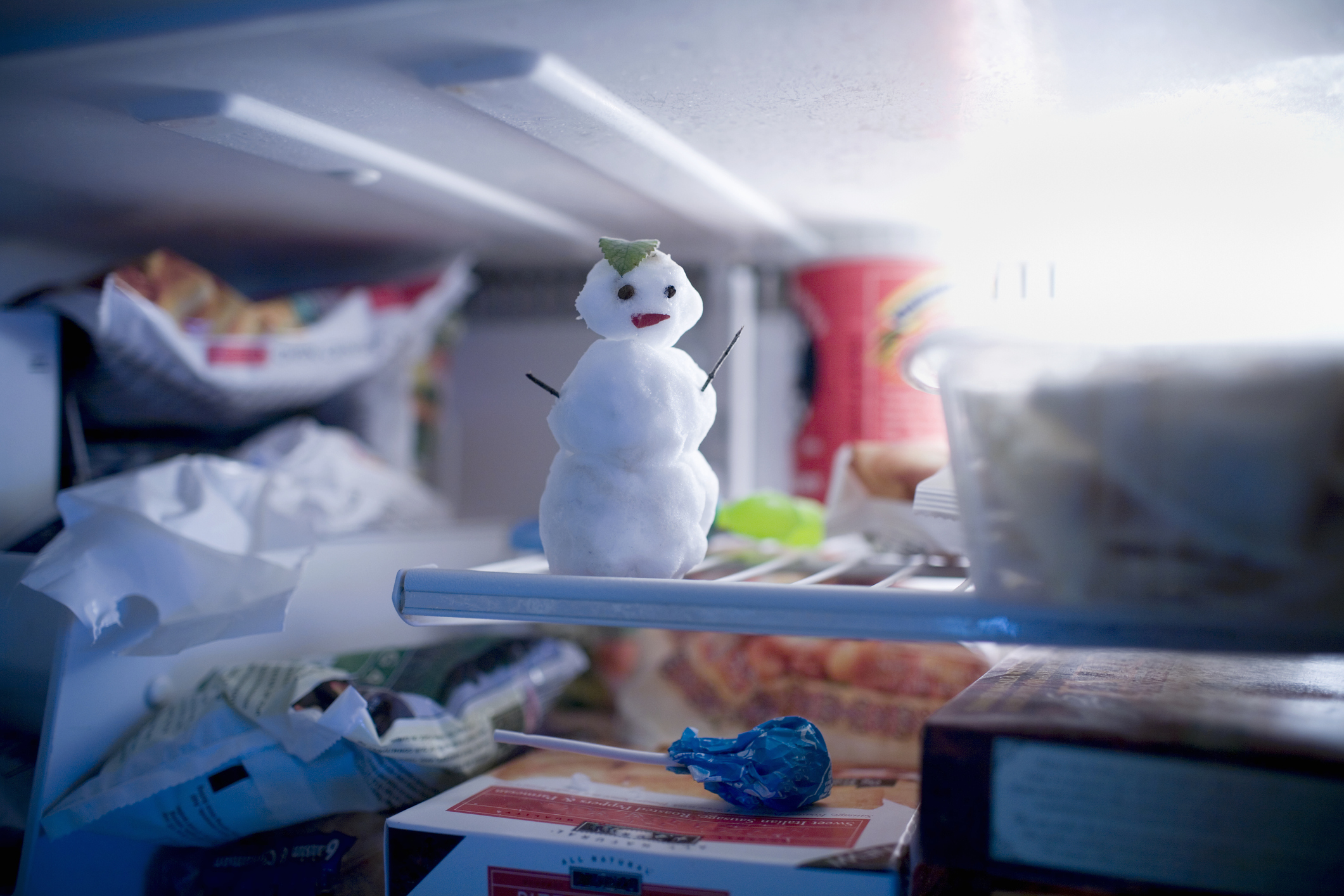
The cost of living crisis means many households are maximising ways to save on energy, reduce broadband bills and limit petrol costs, among other things. Food costs are another growing expense so it’s all the more important to ensure you don’t waste any of it - even by accident.
One way to do this is to check you are storing food correctly.
While it might seem a good idea to freeze food items to maximise their use, many foods become watery or separate when defrosted. Some foods even end up with a different texture when reheated after spending time in a freezer, and just won't be as appealing to eat.
Our sister site House and Garden helps us explain what items to never put in a freezer.
Leafy greens and vegetables
Leafy greens and vegetables such as romaine lettuce, spinach, kale, celery, and cucumbers that are high in water content don’t freeze well if you want to use them in a salad, according to chef Melanie Underwood.
Having said that, they are great to freeze if you are going to use them to make smoothies or soup in a blender.
“Onions and cabbage which become very watery when frozen and again, not great for eating raw, are incredible if you blend them. In fact, they are easier to cook because of the extra water from freezing,” she says.
Milk and cream
Dairy products like milk and sour cream may not have the same texture when thawed. This may be unappealing and you won’t be able to whip cream up into whipped cream after it has been frozen, according to Merissa Alink who runs a blog called Little House Living.
“Most items that say 'do not freeze' aren't saying it because of a safety issue but because of a quality issue,” she says.
But you can still use frozen heavy cream in soups and baking.
Eggs
Eggs don't do well in the freezer either.
“They can actually freeze solid and then crack when you try to use them, so it's not worth it,” says kitchen designer Hara Lessandra. “If you want to extend their shelf life, keep them in the fridge instead.”
Custard or gravy
It’s not advisable to freeze any custard or gravy that is made with corn starch or gelatine because it becomes watery and separates when it is defrosted, which changes the taste, texture and appearance.
You definitely want to keep these delicious sauces away from the freezer.
Cheese
If you've doubled up on Emmental slices or rounds of Camembert or just bought too much Cheddar, don’t store any of it in the freezer, as it could lead to crumbly, dry cheese that's lost all of its flavour.
If you do need to store cheese for a long period of time, it's best to keep it in some tupperware in the fridge or a cool pantry.
Glass bottles
As we should have learned at school, liquids expand in the freezer. So any drinks in glass containers should be stored in the refrigerator; otherwise the liquid may burst out of its container and cause the glass to break or shatter.
Is it safe to freeze food that says “not safe for freezing”?
Is it safe to freeze food that says “not safe for freezing”?
“The answer is a bit of both,” says Ronald Smith, a dietician from EatDrinkBinge.com.
“While it's technically safe to freeze most food, including food that's labelled ‘not safe for freezing’, the quality of that food will generally decline. So if you're looking to preserve the quality of your food, it's best to avoid freezing it.”
More reading on food
- "I’ve been storing tomatoes wrong my whole life" - foods to never store in the fridge
- Food prices: how to cut costs as UK food price inflation hits 13.3%
- Fresh vs frozen food - which is cheaper?
- Aldi to open nine more stores this year – full list of locations
- Best supermarket loyalty cards for saving money on your shopping
- How to cut food waste and save hundreds of pounds







